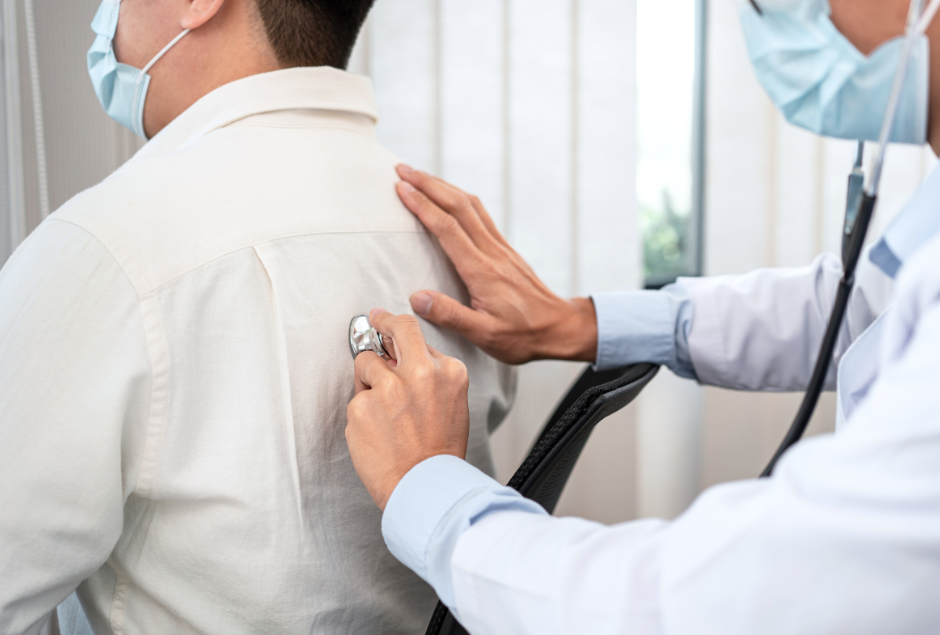Pneumonia and flu, the peak of infections has passed but…
“This winter the spread of influenza viruses, such as: H1N1, parainfluenza, respiratory syncytial virus and Sars Cov 2, also responsible for pneumonia, has reached very high peaks, in many cases affecting even the youngest. A phenomenon widely expected given the poor adherence to the vaccination campaign compared to previous years.” These are the words of Doctor Marco Brunori, PhD in Cardio-Respiratory Physiopathology and Respiratory Physiopathologist at Villa Margherita.
The Dr. Brunori explains the reasons for the spread and indicates advice for avoiding contagion
“Unfortunately, this year the risk of influenza it has been underestimated and only a relatively low number of people have taken the vaccine. The worrying increase in cases, especially in the period of the end-of-year holidays, but also before it, has corresponded to an increase in infections, even among people younger than those usually affected, with a growth in the incidence of major complications, such as pneumonia. The peak, which was thought to have been overcome after the end-of-year holidays, persisted in the first weeks of January and only seems to be decreasing slightly in the last few days.”
“Fortunately – he continued – today we know how to intervene, therefore, if caught in time, any pneumonia, which is an infrequent complication, can be cured. This does not take away the importance of the vaccine which is strongly recommended for people over sixty and frail, or for people with cardiovascular, respiratory, endocrinological, oncological, hematological pathologies.”
“About the increased incidence of complications among young people – underlined the doctor – it must be specified that this is a statistical data linked to the general increase in infections and not to a greater virulence and danger of the virus. For this reason, it does not represent an alarming phenomenon, such as to modify the guidelines of the vaccination campaign by extending it to all age groups. For the previously mentioned subjects and for younger ones at greater risk, it is good to keep in mind that vaccination, like influenza, follows a seasonal peak, which runs from October to the end of January. Therefore, the best thing is to get vaccinated immediately, as early as October, before the arrival of the great cold and, therefore, the widespread spread of the disease.”
“For those who are affected – he continued – the recommendation is to contact the doctor if a pathology that differs from a normal flu or para-flu appears. for the persistence or worsening of some symptoms such as: unusually high fever, chills, muscle pain, and persistence or worsening of at least one respiratory symptom, such as: stuffy nose; dry or wet cough; persistent chest pain; possible breathlessness or sense of respiratory fatigue when carrying out usual actions. In these cases the doctor will immediately prescribe diagnostic tests, in particular radiological and blood chemistry tests. Clearly, based on the nature of the disease: viral pneumonia, bacterial super infection or Sars-Cov 2 virus infection and Covid, the course will change and therefore the therapy will make use of other medicines as well as anti-inflammatories and symptomatic drugs. Since understanding the origin of the disease is fundamental, today, in cutting-edge centers such as Villa Margherita, extensive swabs are available capable of testing Cov, H1N1 and RSV simultaneously which, obviously together with other diagnostic tests are very important for accelerate the treatment and healing process by directing it in a specific direction from the beginning.”
“Finally – he concluded – I want to remind you that the advice to prevent contagion they are always those learned during the pandemic and then, unfortunately, by the most forgotten; such as: personal hygiene, especially frequent hand washing; the constant ventilation and cleaning of the environments, especially in the presence of fragile patients; the use of a mask if suffering from a feverish syndrome.”
